|
The truth is, you cannot fix problems you don't identify, and the first step to change is identifying what is wrong in the first place. Currently, there is a severe lack of impact literacy, part of which stems from the fact that people are generally reluctant to have a conversation that ranks impact from not-very-good to excellent. So much so that the sentiment "Their intention is good' actually seems to count in the discussion about whether or not an intervention, organisation or outcome is good. If we are to improve outcomes for those in need, we need to be better at identifying what is a good impact, and what makes a good impact. This is a long article, but contrary to popular discussion, the solutions and ways forward to deliver best in class impacts to communities in need will require a bit more in depth discussion than pithy one-liners and strong PR campaigns. It's time to acknowledge good, and therefore, not-very good impacts. At the Just Be Nice Project we have multiple frameworks for assessing, managing and creating impact opportunities. Objective, complete, transformational frameworks and outcomes. When you cast a critical eye over the space of social impact, it turns out, unsurprisingly to some, that 'Awareness' is the lowest form of impact. It's time we did better. Here we discuss the scale and how each step up makes the previous step redundant and unnecessary as an outcome in and of itself. Here is the to future, and of transforming business and communities, for good.
Impact Outcomes - From Least Impactful to Complete. Awareness: Telling people that something exists. I.e. Maths is a thing. Mental illness exists. You can get cancer in various body parts. Awareness is the lowest form of common impact, so why is it so popular? Partly because it requires no expertise, time in or infrastructure to tell people that something exists. All that is required is a platform or a megaphone, with social media providing everyone with a platform we see a proliferation of support for awareness and awareness-organisations. One challenge with this is that there are an infinite number of ways that people come to experience disadvantage and difficulty of all kinds, which means there are infinite opportunities for ‘Awareness’ organisations. However, there are not infinite outcomes that we want for people who are experiencing difficulty. Typically, we want them to have the support they need, when they need it, for as long as they need it. We want people to be safe, housed, employed, fed, clothed, healthy and enjoying good mental health. Telling people that a problem exists, and that’s it. Is the lowest form of impact. Remove Stigma: ‘Removing Stigma’ is similar to awareness, except that instead of telling people that something exists, it is telling people to not think what they might already think about something. I.e. Don’t think that mental illness is not an illness. Don’t think that maths is useless, and not worth studying. Don’t judge people for thinking differently than you do etc. Unfortunately this is ineffective as a premise for impact for several reasons; 1. Humans are confirmation bias machines, “Once we have formed a view, we embrace information that confirms that view while ignoring, or rejecting, information that casts doubt on it.´ How many of you have read this far in the article thinking about all the times you thought that awareness and stigma removal as a good thing to do? Getting ready to tell me that removing stigma and awareness is important. Telling people to not think something that they already think is a really ineffective way of changing minds. 2. ‘Stigma’ is relative, subjective and culturally different. Stigma; “a mark of disgrace associated with a particular circumstance, quality, or person.” The online dictionary definition of stigma uses the following example; "the stigma of having gone to prison will always be with me". This is a great example, because in some cultures going to prison is frowned upon, but in others, if you have gone to prison to protect members of your group, then there may be positive associations with you having gone to prison and you will receive respect for it. 3. Anything and everything can have a negative ‘stigma’, it doesn’t mean that it is worth pursuing impact in that space. Nazis have a stigma, the Swastika has a stigma; I don’t think anyone would argue for the general cultural removal of that stigma, however among Neo-Nazis and Japanese Buddhists, the Swastika means very different things (It is used as a Japanese map symbol for Buddhist temples). 4. Because stigma is relative to cultural concerns, cultural norms and peoples individual views, experiences and environments, removing it is a low impact outcome. Instead, we should look further up the scale of impact towards education and improving understanding. Broadening general understandings of how and why people think the way they do. Consequence Based Action: Consequence based action is low impact because it lacks the ‘stickiness’ of more impactful interventions and outcomes. When we simply pass a rule, a law or create negative consequences around actions without following up with improved understanding, then the impact that we leave is often weak. Take for instance the case of speeding in your car. Awareness: I say speeding is bad. (Consider yourself aware). Consequence: If I catch you speeding, you will get a fine. Most governmental or knee-jerk cultural changes stop at this point. Because of this consequence I may slow down around speed cameras, or past police officers (or cars I think look like police) but it hasn’t fundamentally changed my understanding or belief about speeding. So I will slow down under the bridge, and then speed up again. We would consider this a poor impact. Understanding: If we take the time to teach you about why speeding is bad, in a way that is relevant, understandable and meaningful to you. Then we have a chance to change your attitude towards speeding to the point where you never speed, no matter what. (This is higher on the Impact Scale ahead). Consequence based action, while simple, can often have the unintended aftereffect of driving behaviours behind closed doors or into smaller cultural groups. When a crack appears in the negative consequences those behaviours once again flow to the surface. If I didn’t believe speeding was bad, and there was a day when the police said they weren’t booking anyone because of strike action, I would probably speed. If I had racist opinions and wasn’t allowed to voice them until the political climate changed, when it did, I would once again be publicly vocal about my previously privately held beliefs (we have seen this in the United States more in the past couple of years). For these reasons, simply creating punishments/negative consequence-based action is a low form of impact. Incomplete/Token Intervention: A good impact is comprehensive. There are few things as damaging to the pursuit of comprehensive impact outcomes for those in need, as satisfaction with the incomplete/token intervention. Incomplete interventions are incredibly detrimental because they; 1. Provide a false sense of having done something to the people contributing to the intervention. 2. The break the trust for the person or community receiving the help. Removing the trust that they will ever get the complete help they need, rather than the token help that someone is prepared to give them. Promoting ‘some good’ as better than ‘no good’, and allowing excuses to be made for individuals and organisations who are doing things ‘with good intentions’, is one of the glaring reasons that the charitable and philanthropic sector is so unbelievably inefficient and ineffective at helping those in need. If we are to improve the standards of care, and outcomes for those in need, we need to stop promoting these interventions as high impact. They are low impact, and in many cases, detrimental. The only reason they are higher impact than the others is that they do involve action. These interventions come in below education because ill-advised, amateur and ill-considered actions are worse than taking the time to actually know, understand and deliver quality help. If I was to simply attempt a heart surgery, in a café, out of the blue on a friend of mine who was having heart troubles, I would most likely kill my friend, and I would get into serious amounts of trouble. If I was truly committed to being able to operate on hearts, I would first need to go to school/medical school/graduate school and do decades of learning and practice before I was in a position to do the surgery. If you believe helping people who are experiencing disadvantage require a lower level of skill and understanding to help then that, then you are in need of some impact literacy training. Learning is more important than simply jumping in and ‘having a go at something’. We are killing people through these kinds of interventions, in much the same way as I would have killed my poor friend with my amateur surgery. Educate/Improve Understanding: Education is about responsibility, making sure that people understand and have the tools to further develop their understanding in a space. If I stood in front of a class of English speakers and taught maths in Russian, we can’t consider them ‘educated’ about it. Even though the information I gave them was spot on. They are educated when they know and understand what I am trying to teach. As all teachers know, that means usually a broad explanation, followed by individual adjustments and explanations over time to continually build on existing knowledge. Teaching isn’t done when a keynote is finished, it’s done when the people you seek to teach understand. Changing understanding takes time, investment and continuous effort to meet people on their terms to bring them around to a complete understanding of problems, issues, experiences, solutions and frameworks for decision making/evaluation. It has been said by many great philosophers and thinkers that understanding is the antidote to fear and prejudice, and I tend to agree. Through broadening understandings and educational outcomes, we empower the educated and improve the chances that low-impact interventions are never even considered, because we know better. Further to that, the best impact any person or community can have, is doing what they are good at. If you want the simplest way to improve your capacity for impact, be better at what you are already good at and doing. Through education we can take a lay person and turn them into a brain surgeon, through education we can take a lay person and turn them into someone who is capable of being a high-impact participant in a system of help for those in need that gets the job done. Inequality in education and socio-economic indicators in general create greater disparity between the lived experience and understanding of people different classes and backgrounds and causes insular, exclusive outcomes for certain groups, often at the expense of others. We should invest heavily in improved impact literacy and education outcomes for individuals of all ages, communities and corporations alike. Work On Solutions: After Education has improved, work on solutions is the next step up the impact scale. Taking the emphasis on knowledge, understanding, rational logical consistency, outcome-driven work and building comprehensive, long-term, inclusive, high output/low input solutions is an essential and highly impactful activity. Bearing in mind that when it comes to the broad categories of disadvantage, we need solutions that are comprehensive. All solutions should be pointed towards taking responsibility for those in need, and ensuring that everyone has access to the same outcomes, of being housed, employed, healthy and having good mental health. A ‘solution’ is not simply something that address a token or incomplete part of a problem. A solution solves the problem completely. Gains in efficiency and economy can be made once the solution and outcome is reached. The attitude of ‘what is the smallest possible, single thing that we can do to help people’, has to change. It is leaving people and communities behind, and we can do better. The first step is to get people to an outcome, the second step is to find economical ways to deliver those outcomes. The first step is not, find an economical ‘easily scalable’ single intervention and see if that’s enough. It isn’t. Solve Problem: Almost the very best impact you can have. Solving the problem. Creating an environment, framework and pathway that ensures the person or group you are working with reaches an outcome. A solution will rarely be static and concrete, it will have dynamic flexibility built into it. It will rarely require one intervention, rather, it will need coordinated, multi-part, multi-stage interventions. It will require a developmental focus, responsibility will need to be taken for those receiving help and need to be pointed towards complete outcomes for those people & communities. The Just Be Nice Project has spent over a decade delivering frameworks and integrated solutions for organisations, communities and individuals. Ensuring that we can build out outcomes focused interventions that leverage the skills of interested parties and partner organisations to deliver the best quality outcomes for those in need. Through regular engagement and integration with organisations we get the chance to teach, and improve understanding along the way. Make Solution Universally Available: Having a solution, a comprehensive, long term solution for a problem is great, but until it is available to everyone who might need it, the job is not done. I.e. A cure that is reserved only for those who can afford it, education that is not available to everyone who would benefit from it, water/power/housing/clothing/nutrition solutions that remain inaccessible to large percentages of the global population. This is the ultimate gold standard in impact; universally available access to the help that people need, when they need it, for as long as they need it. This will take quite some time to achieve as it will require a lot of collaboration, responsibility, accountability and resource allocation. Culturally it will take an understanding that human beings all over the planet largely want the same basic, fundamental things for them and their families, safety, community, nutrition, opportunity, a place to call home, good mental health, something engaging, meaningful and relevant to do. If we can understand that the outcomes that we want for our children and our families are the same outcomes that everyone else wants, and deserves, then we may be able to shift our perspective to one that leads to less fear, greater equality, unity and opportunity for everyone. If you work your way through the scale of impact to the top you will find that every outcome mentioned is met by the very best possible impact – Universally available solutions. Every low-impact outcome is met by the higher impact outcome above it, rendering it unnecessary on it's own. The Universally available solution – (working backwards) Solves the problem, improves understanding, co-ordinates all interventions, removes stigma and increases awareness (through understanding and engagement). There is a pinnacle of impact that we can aspire to, so let’s stop being happy with poor quality, low-impact interventions. I’m not saying that low impact is ‘no impact’ exactly, but why should we settle for the lowest possible impact? Or spend money on it? You can raise awareness for free, so lets start paying for solutions rather than awareness and let the awareness happen as part of that process. Let's raise our standards and the standards of help for everyone at the same time. A rising tide lifts all boats, and it’s time we lifted everyone up instead of sitting back and pointing at problems, saying they exist, and calling it a day. This is the work that we are committed to every, single day, and we believe that we still have much of the most important work yet to be done. Thank you for taking the time to read all of this, do reach out if you'd like to discuss any of it further, or improve your own personal or organisational impact outcomes. If you'd like to be one of our legendary financial supporters, you can subscribe here, helping us to create an eco-system of help that ensures everyone gets the help they need, when they need it for as long as they need it. We can't do it without the collective help and support of people and organisations committed to a better future of social impact and equality. "To create extraordinary positive change in the world, by helping people and organisations make ordinary positive change"
I wrote my mission statement years ago, after much deliberation on how to communicate my life goal, which is about providing a simple outcome for people in need. A simple outcome which requires a sophisticated framework of support, solutions and interventions to achieve. I know people often look at 'ordinary positive change', and interpret it to mean ‘lowest common denominator tasks’. Thinking ordinary positive change is just doing one or two arbitrary 'nice' things from time to time. Looking for opportunities where they can 'see' the impact. Queue- painting a fence, working in a soup kitchen, packing a hamper-type work. This 'ordinary positive change' is interpreted as having 'extraordinary positive impact' because charities sell that message daily. Selling the idea that to have the biggest impact you should do something you don't normally do. Get out of the office and paint a fence, run a race you don't normally run, have a fancy dinner, work in a soup kitchen etc. The truth is, the best impact you can have is always, doing what you are good at. If you are truly looking to expand your potential for impact, you should focus on being more skilled. That is your avenue to exponential impact. Always. Ordinary positive change is actually about integrating impact into your day to day life. Based on things you are good at, things you are already doing and things that you do regularly. It is about making transformational, rather than transactional change in the lives of individuals and organisations. It is about paying respect to your hard-earned skills and aptitudes, because people in need deserve the best quality help, and that comes from people helping in the areas that they are skilled in. Ordinary change isn't about picking an 'ordinary' task, it’s about putting your impact opportunities on the end of what you're good at. Making change that is 'ordinary' for you, but extraordinary for those who benefit from that change. It's time that we do better and make sure that people who need help, get the help they need, when they need it, for as long as they need it. Regardless of how they come to find themselves in need in the first place. Thanks for stopping by. Keep being excellent, and as always, Just Be Nice - JBNProject Founder; Josh Reid Jones Are you looking for ways to integrate meaningful positive impact into your life and organisation in a way that makes sense to you? Get in touch with any questions and stay up to date HERE - We'd love to have you on board. Read more about the Just Be Nice Project and how we can help your organisation improve here. This year we sent out August with a bang in Sydney, with the Annual Professionals In Sport and Sponsorship lunch at Kingsleys Steakhouse (King St, not Woolloomooloo!).
As always, a fantastic event, with plenty of laughs, hugs and friendly conversations over a delicious lunch. Our panel guests for 2019 were Rugby League superstar; Luke Burgess, Rugby Union legend; Drew Mitchell and Wallaroos Player of the year Emily Chancellor. Hosted by the inimitable MC Matt De Groot (a name we can only guess translates as Matt The Great, a fitting name indeed) and Andrew Swain, one of the biggest and best that Fox Sports has to offer, in talent and actual size. On a strictly be there, or miss out basis, we heard some fantastic stories and yarns from some of the finest athletes and people in the country. If you'd like to be a part of it next year, pencil in Friday 28th August 2020 for the next PROFIS Sydney event, it is one you won't want to miss. A massive and deeply heartfelt thank-you to the organising committee Woody, Doc, Jeff, Shannan, Shane and Rochelle, who pulled together a fantastic event once again. To Matt and Andrew for being two of the best hosts in the business and the athletes Emily, Luke and Drew who gave up their time for this event, along with all the sponsors - including Kingsleys, Billson's, Venues Live, Accolade Wines, Think Spirits and The Rabbitohs we raised over $4,500 which is an amazing result. We could not be more grateful if we tried. We can't wait for next year. We'll see you again for steaks, good times and great impact in 2020! |
Just Be NiceA collection of articles relevant to pursuing the effective execution of altruism in the search for equality of opportunity. Archives
February 2020
Topics
All
|
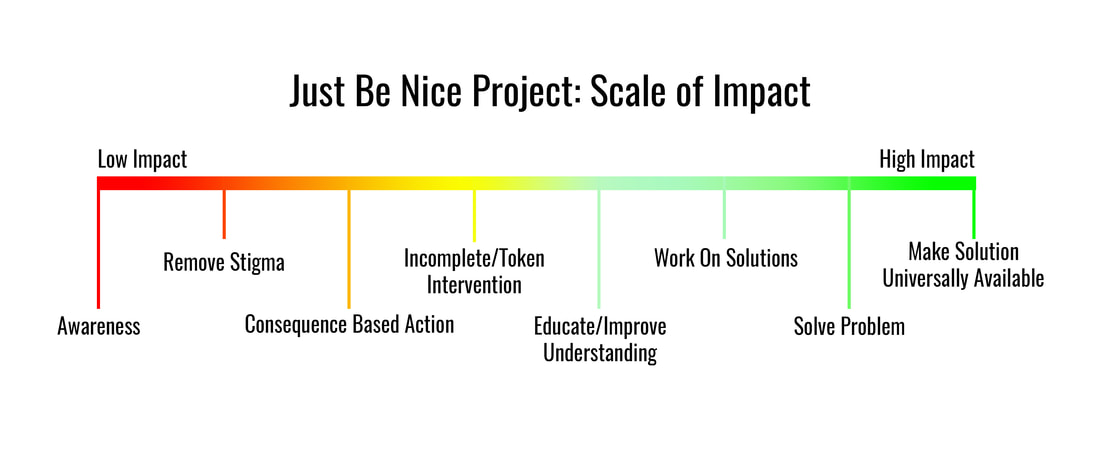
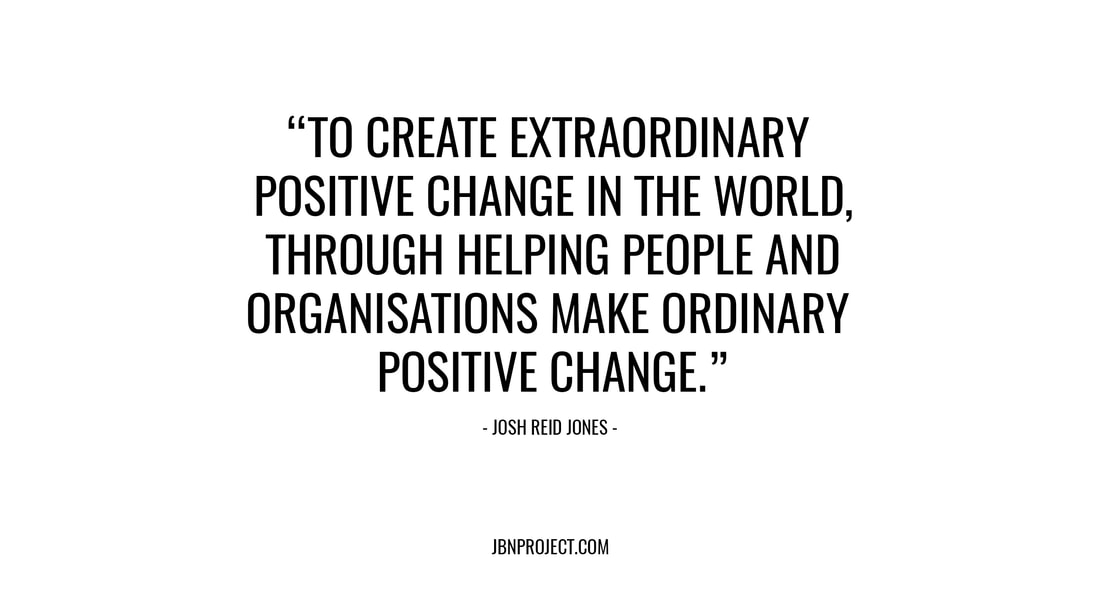
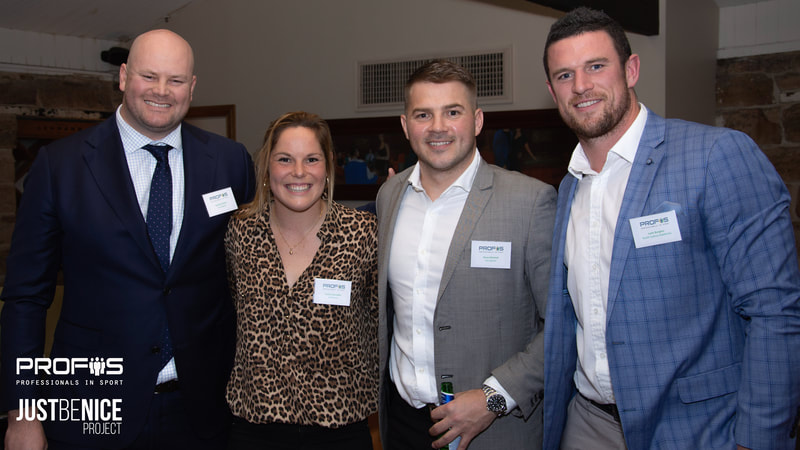
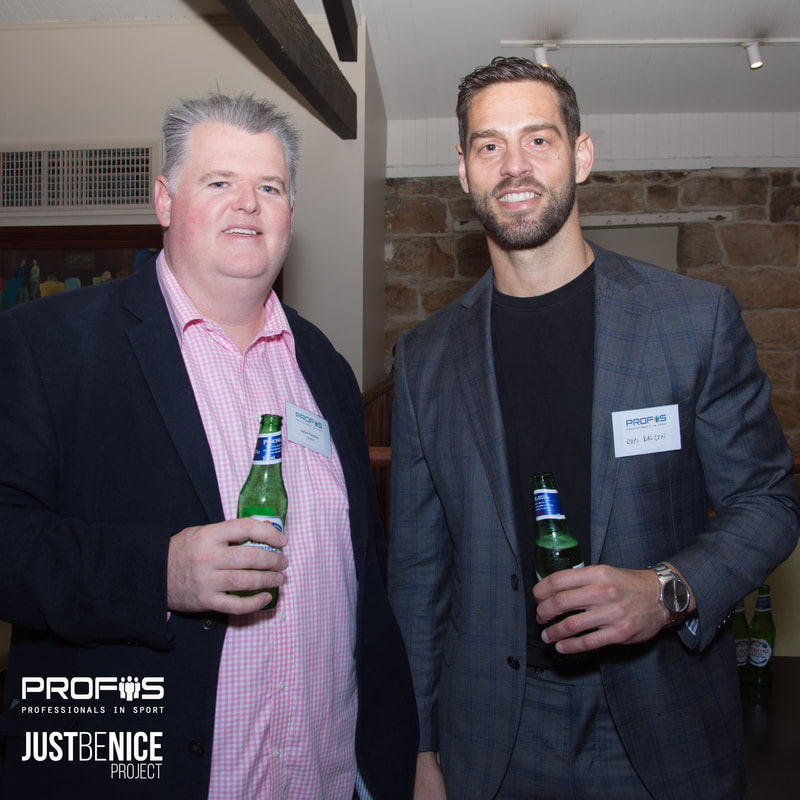
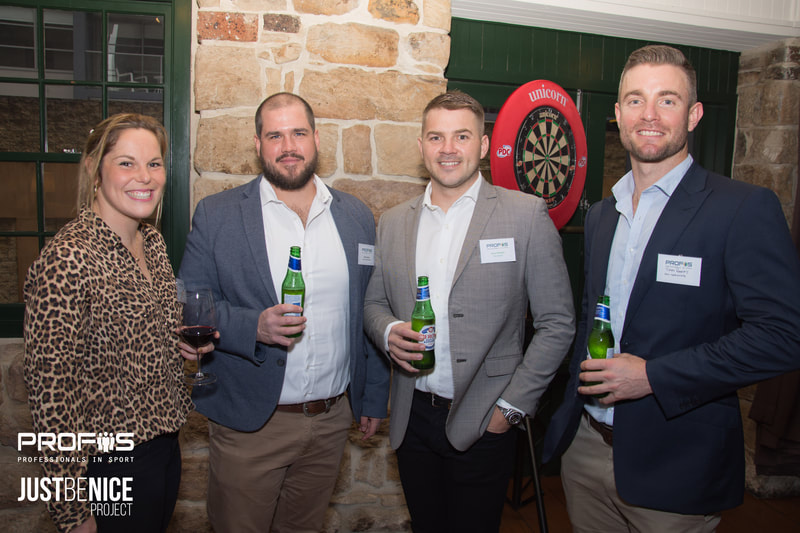
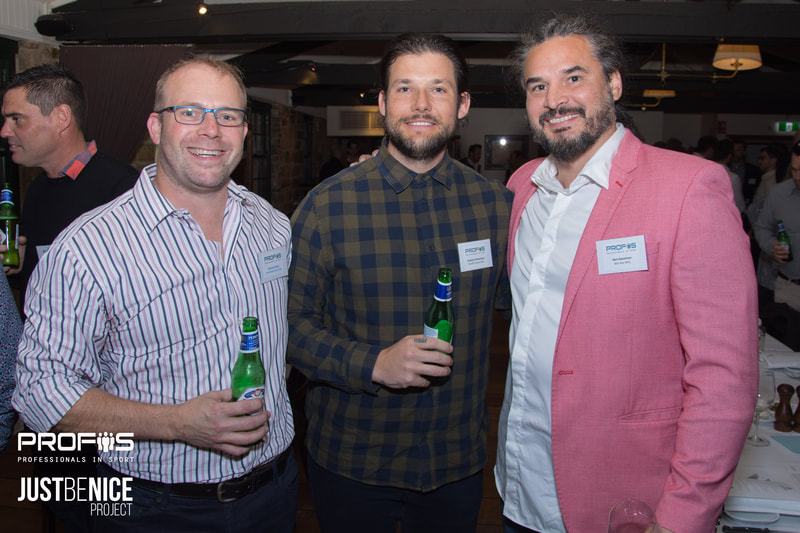
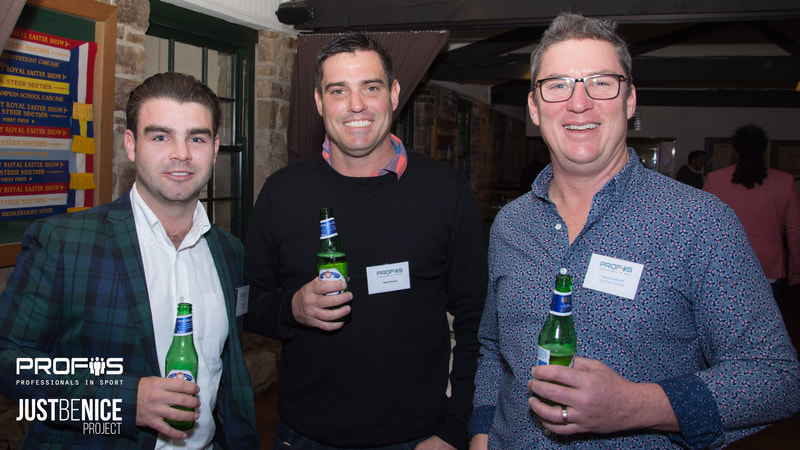
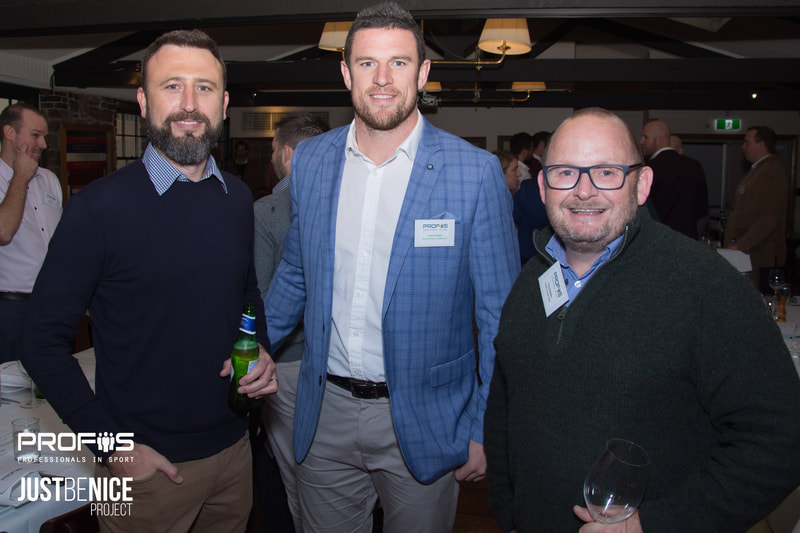
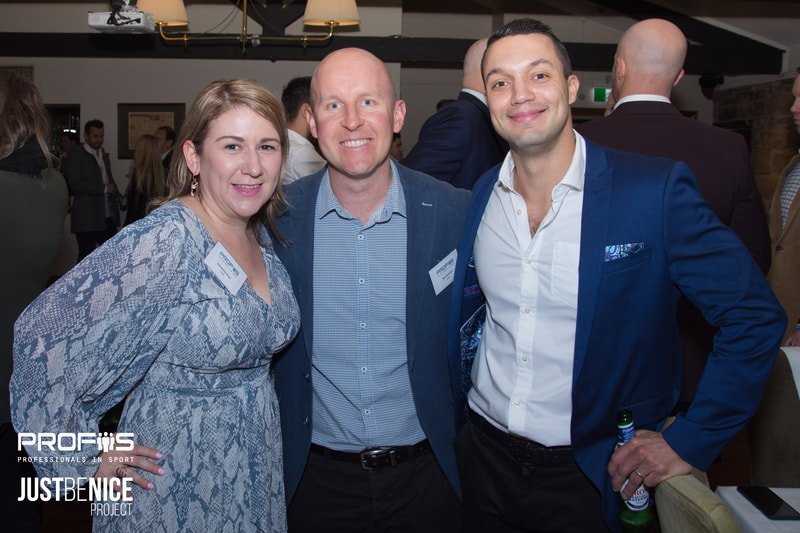
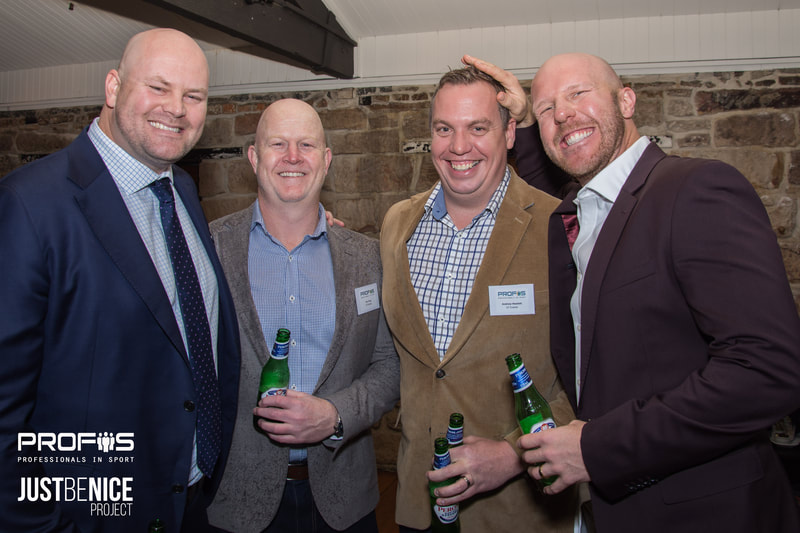
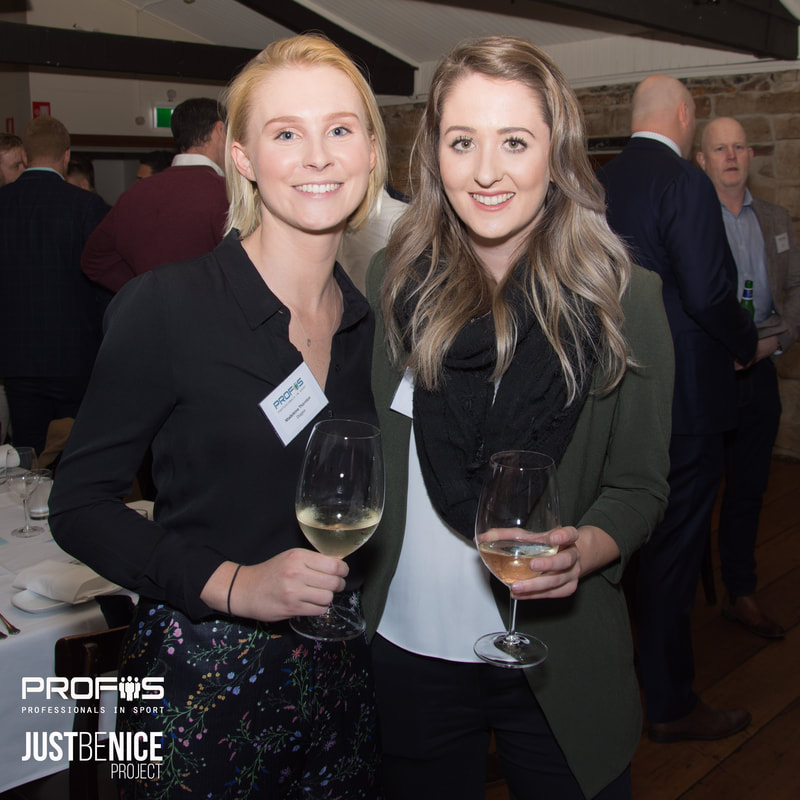
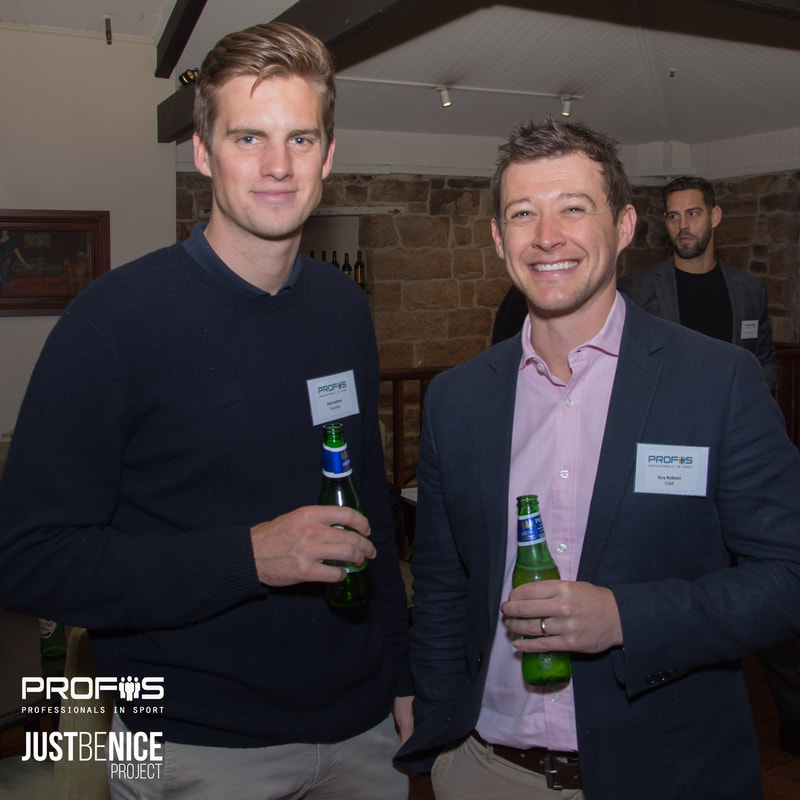
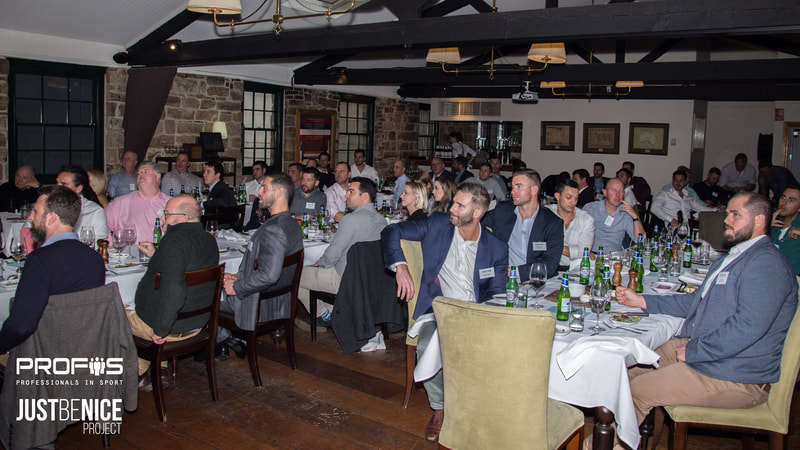
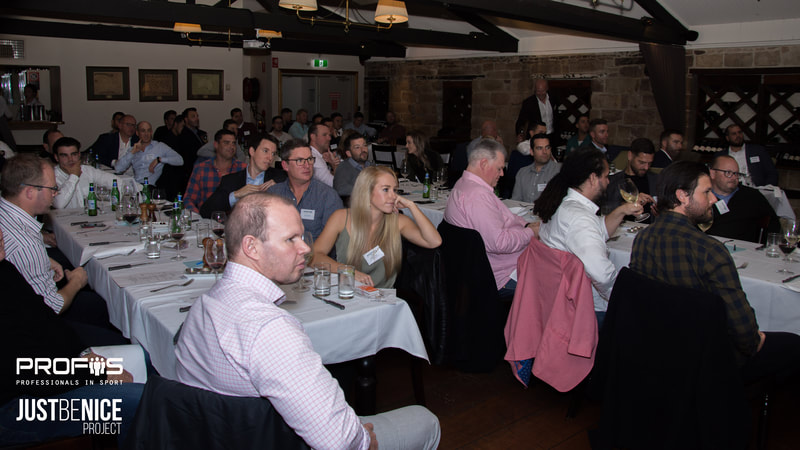
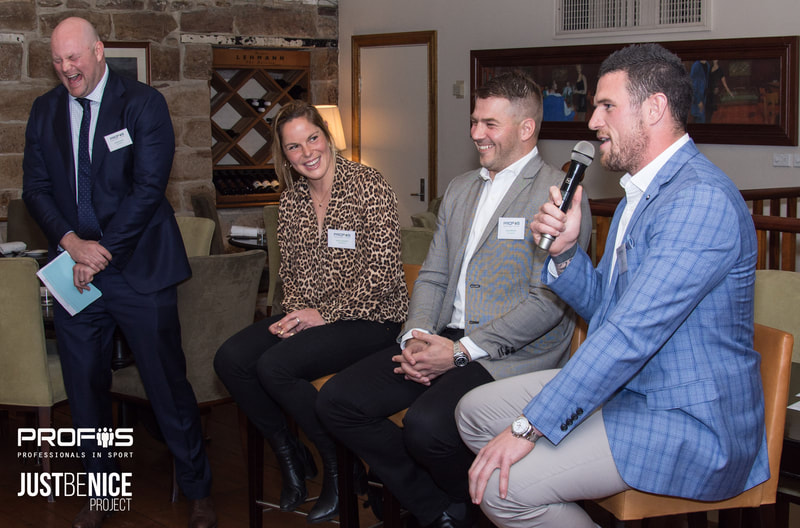
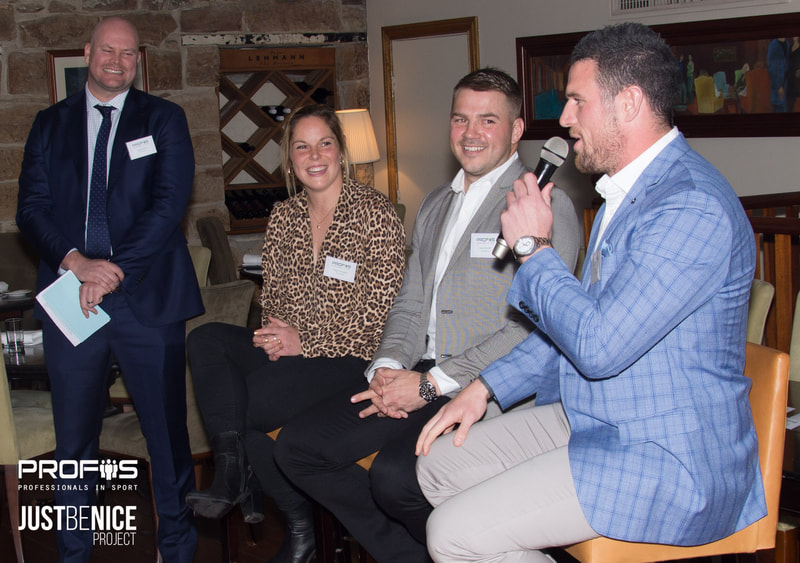
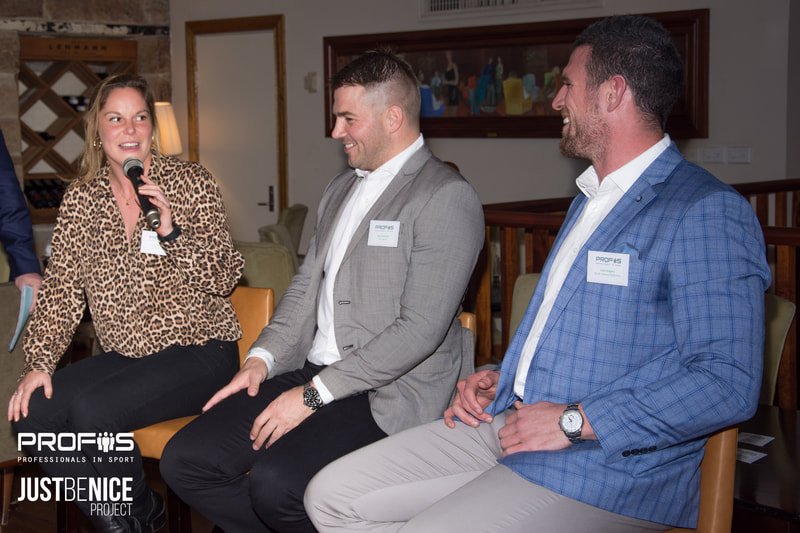
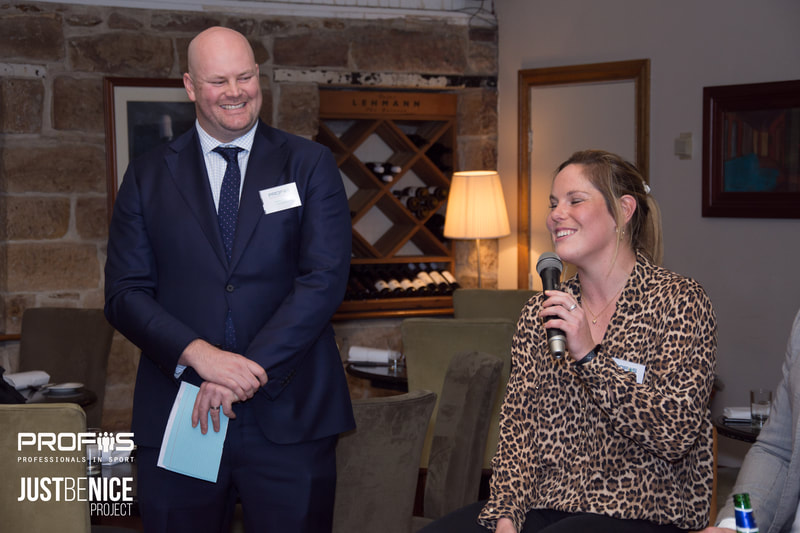
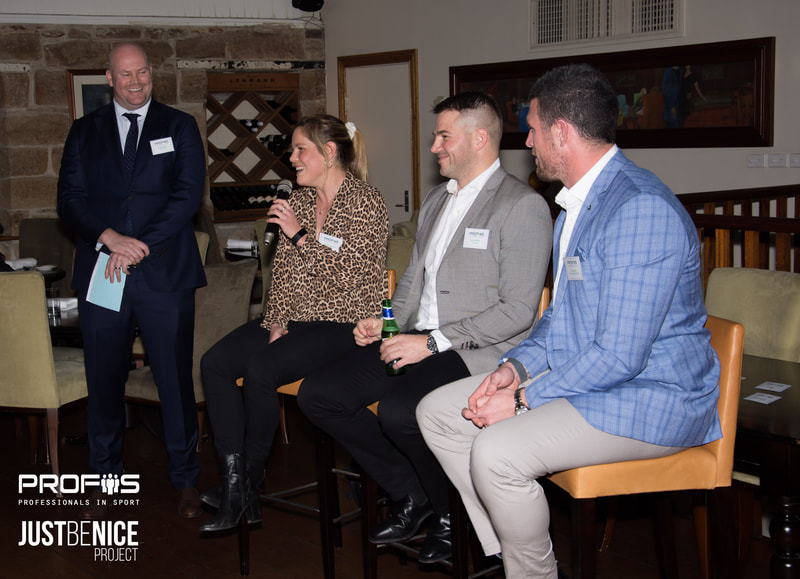
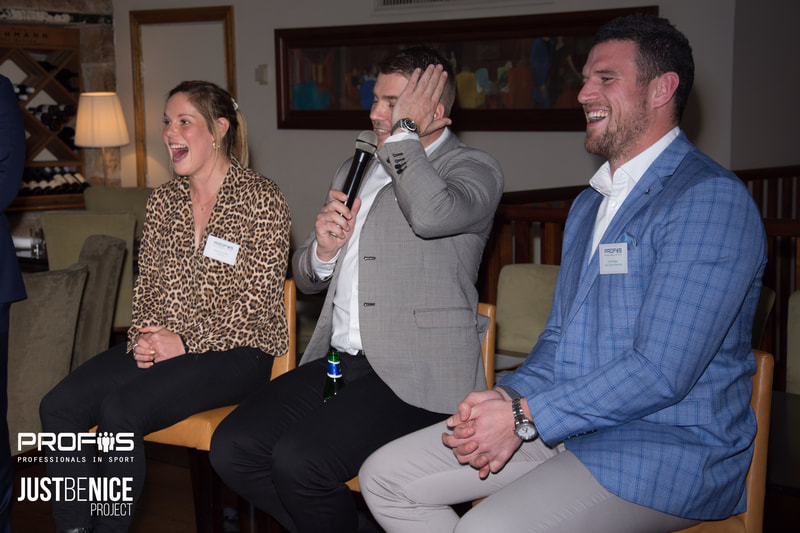
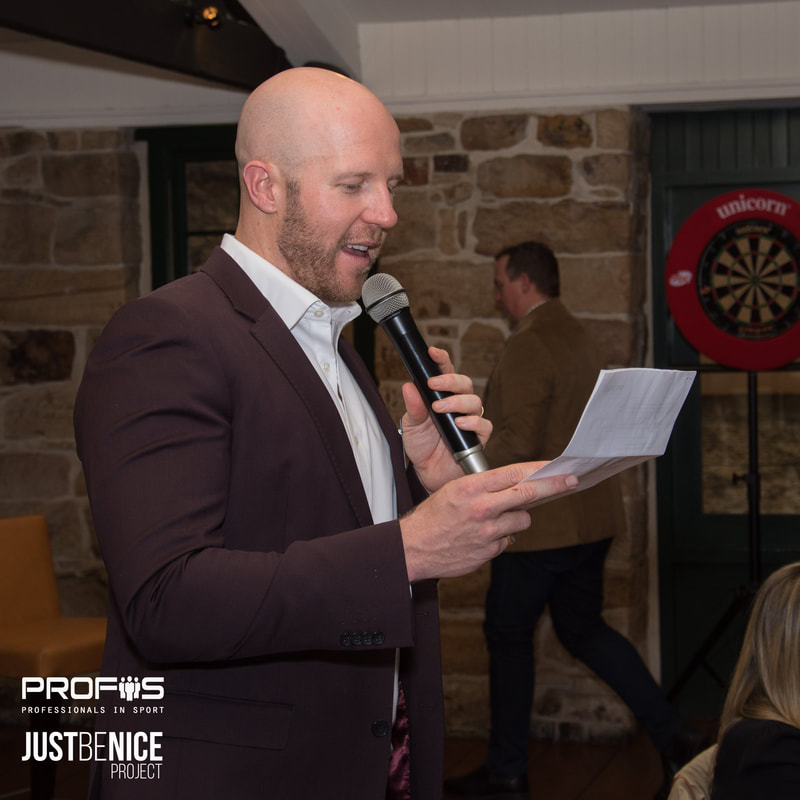
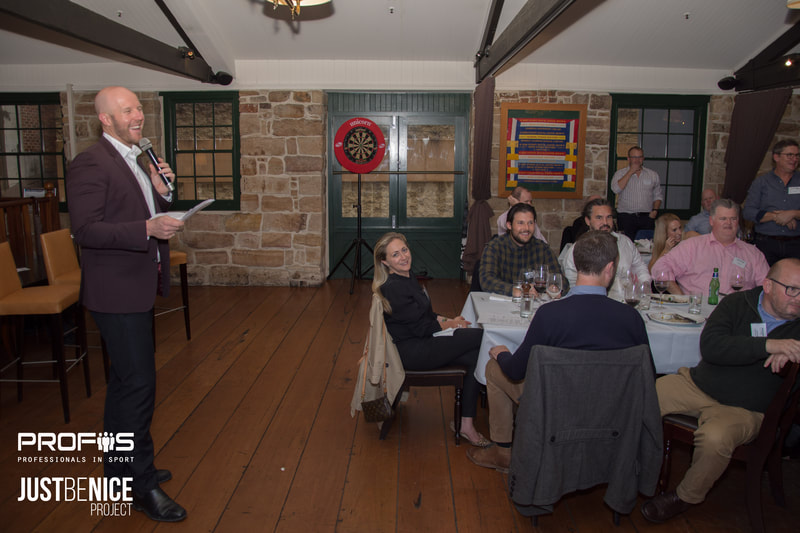
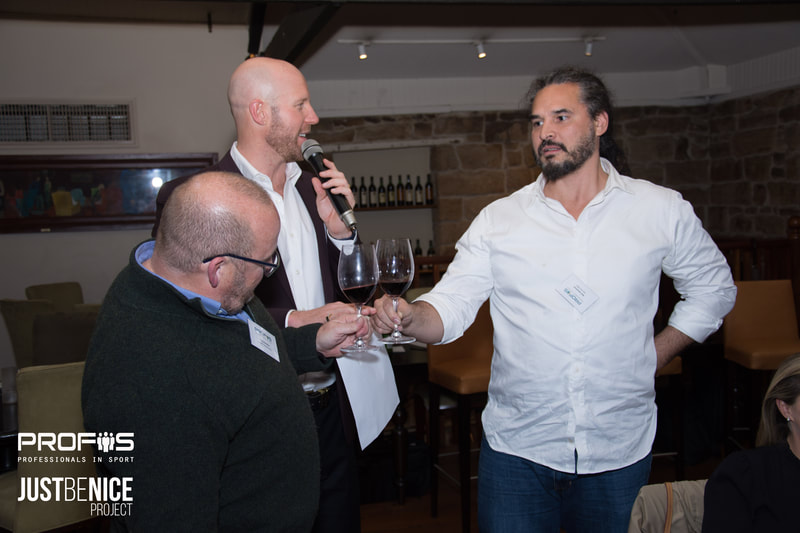
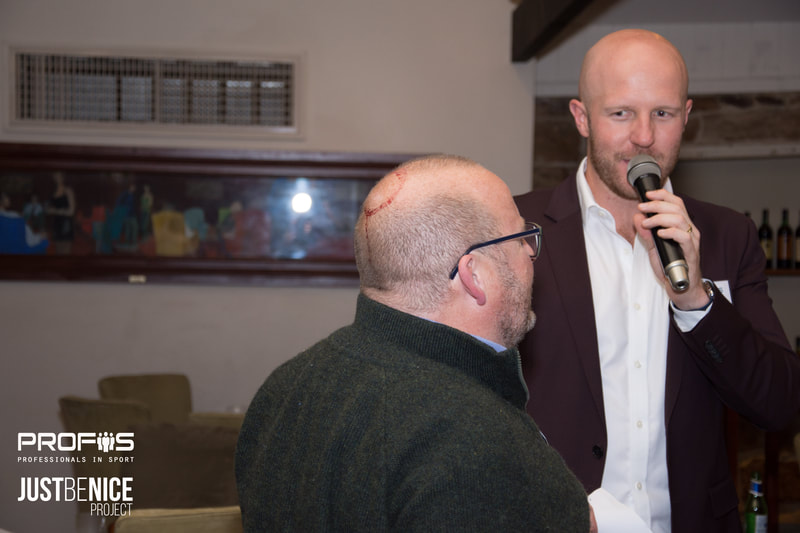
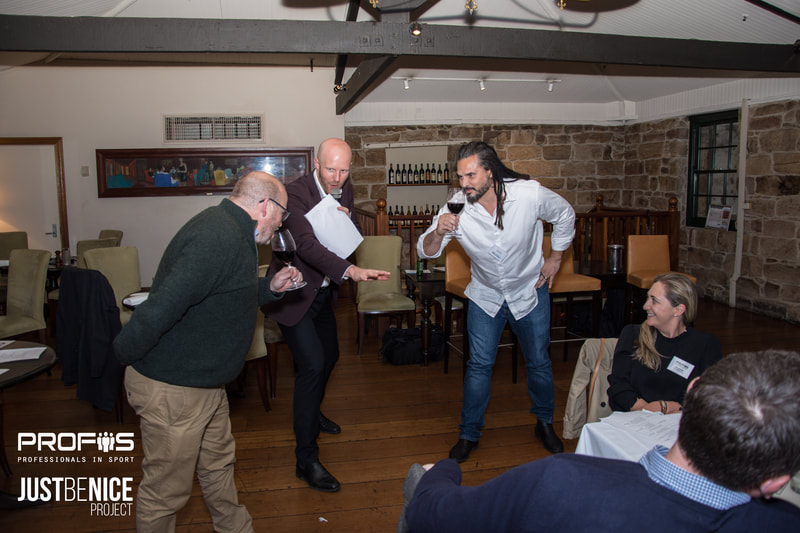
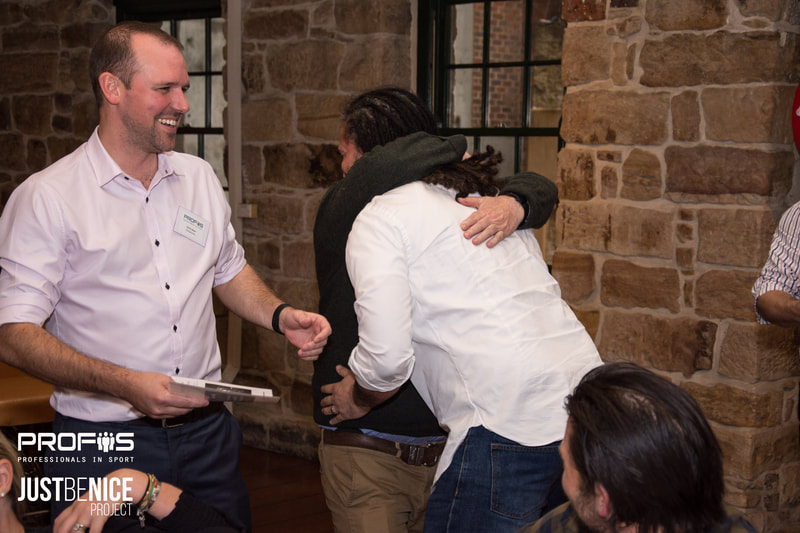
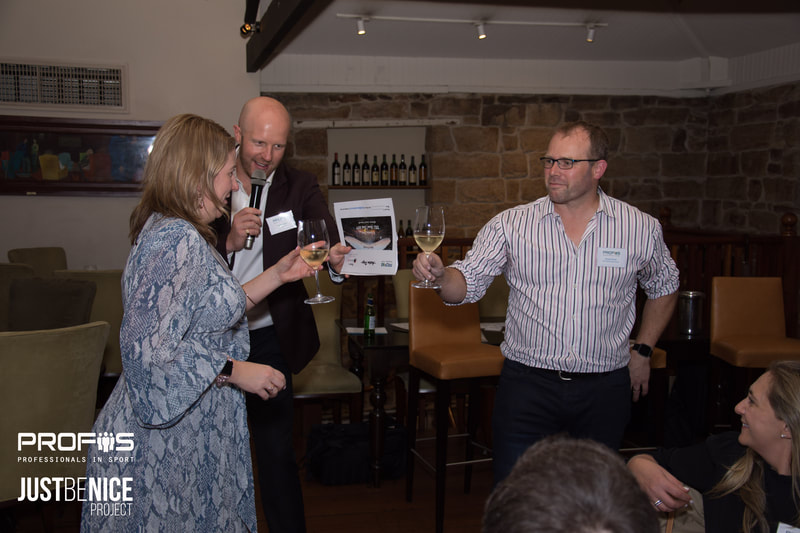
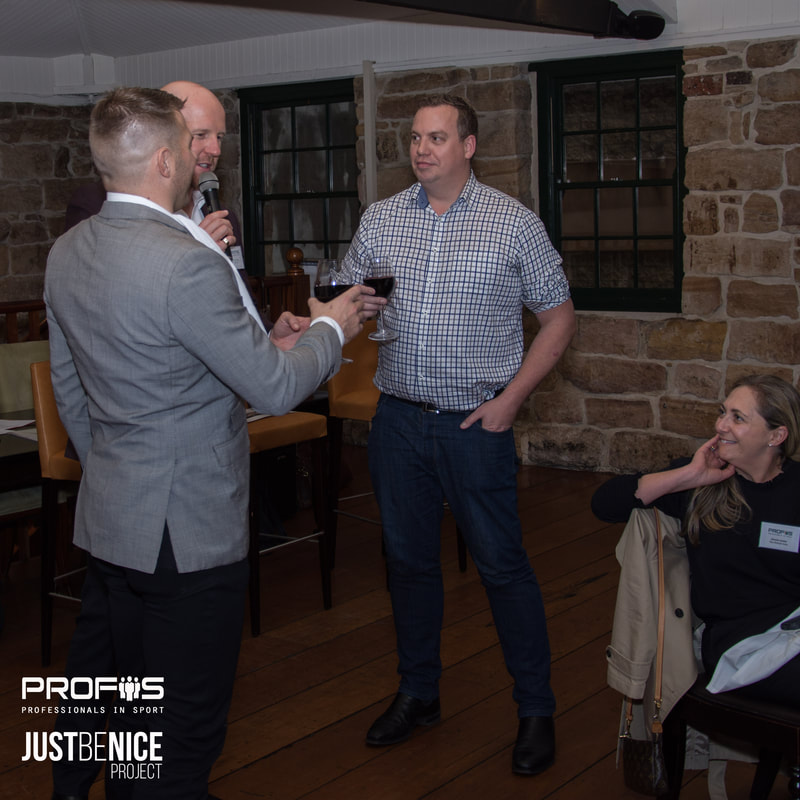
 RSS Feed
RSS Feed